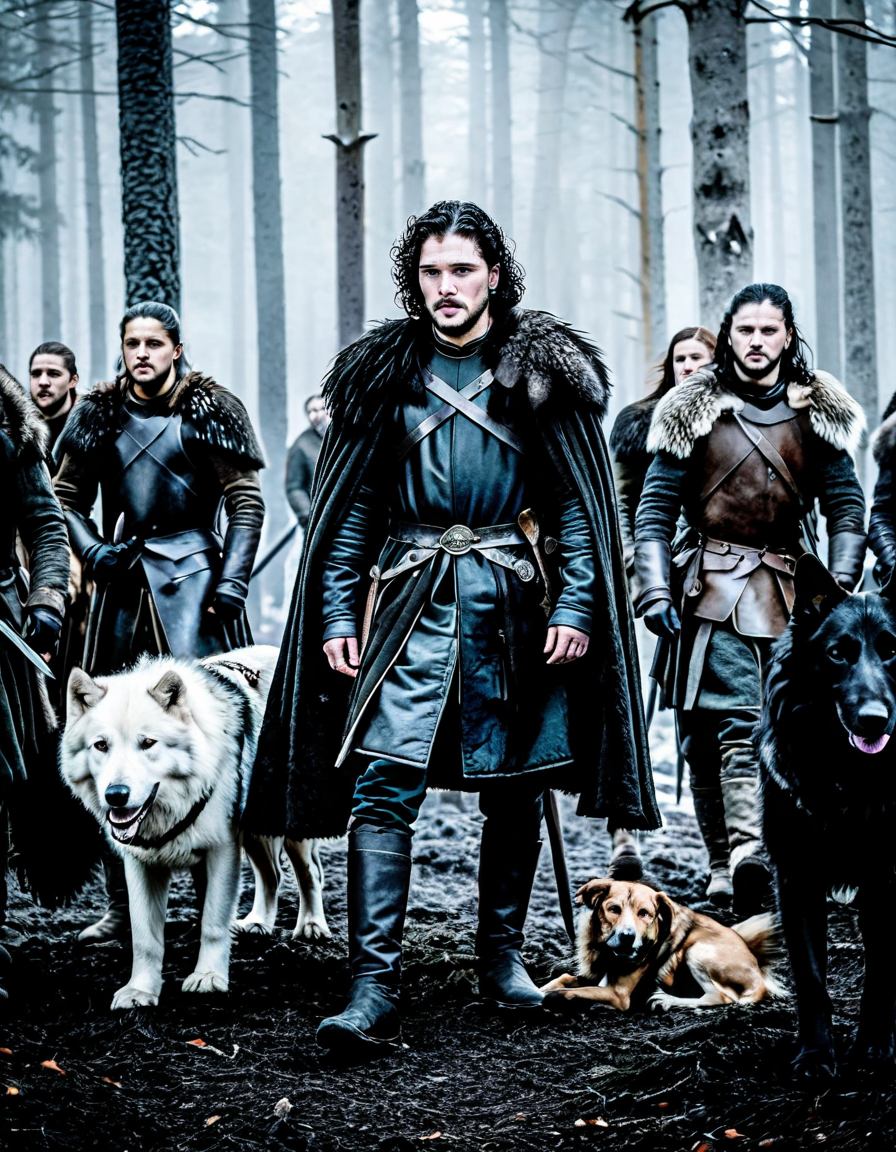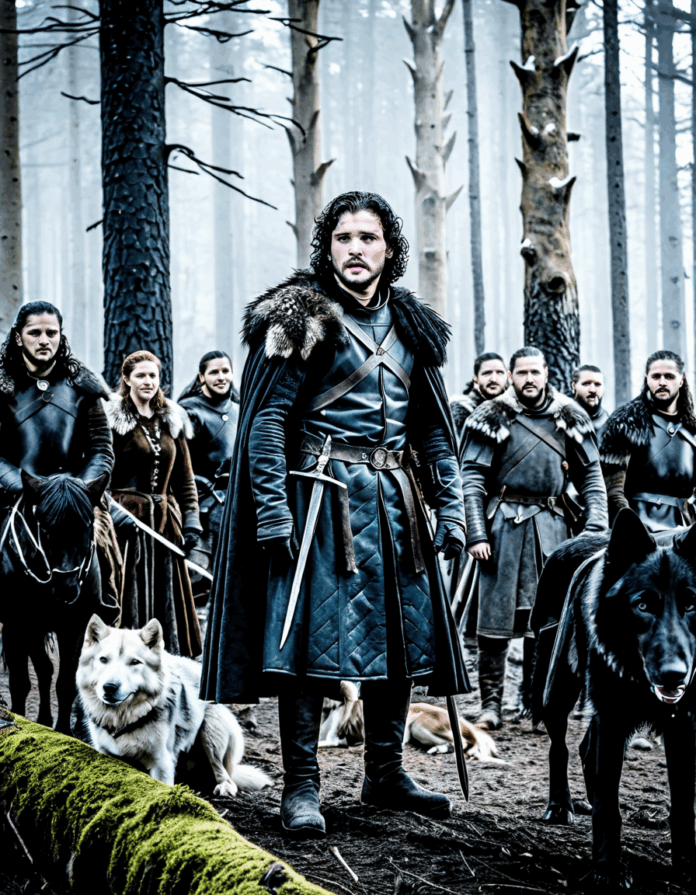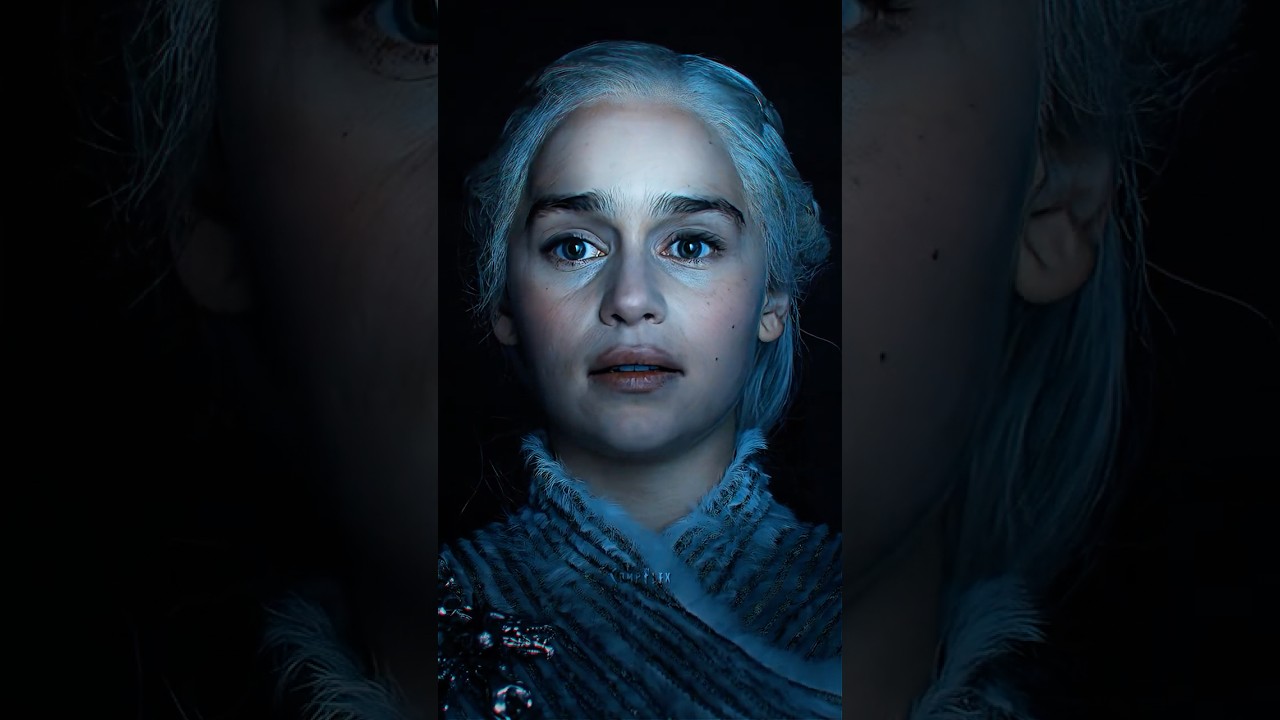Jon Snow, portrayed masterfully by Kit Harington in HBO’s “Game of Thrones,” rose from the shadows of his family’s legacy to become one of the most captivating heroes in television history. Once regarded as a mere bastard child of Eddard Stark, Jon Snow’s journey intricately weaves through themes of nobility, honor, and sacrifice, revealing the complexities of identity in Westeros. His evolution from an outsider to a leader speaks volumes about the enduring spirit of loyalty and self-discovery, resonating with audiences worldwide even in 2026.
The Evolution of Jon Snow: From Bastard to King
Jon Snow’s story begins with hardship and uncertainty. Being the illegitimate son of a nobleman, he constantly faced prejudice and doubt. Yet, instead of succumbing to despair, Jon found his purpose with the Night’s Watch, a sworn brotherhood protecting the realm from threats beyond the Wall. His commitment to this cause marked his first significant step toward embracing his identity. Through the trials and tribulations, he learns about duty, loyalty, and the weight of leadership.
As Jon navigates the icy expanse of the North, he encounters fierce enemies and unexpected allies. His tumultuous relationship with Ygritte, a wildling woman, adds layers to his character, forcing him to confront his emotions amidst the chaos of war and loyalty. Their love story develops against the backdrop of brutality, leading to a heart-wrenching climax when Ygritte dies in Jon’s arms. This moment cements Jon’s transformation, urging him to mature emotionally and solidify his tragic hero narrative.
The revelation of Jon’s true parentage unravels the final threads of his past, intertwining him with two powerful houses — Stark and Targaryen. This unexpected twist challenges his perception of himself and places him at the center of a power struggle, forcing him to reconcile his identity with his responsibilities. Jon Snow’s journey is not just about fighting for the North; it’s about understanding where he fits into a narrative much larger than himself.

Top 7 Defining Moments of Jon Snow’s Journey
Jon’s decision to join the Night’s Watch is monumental. It signifies more than just a commitment; it frames the story of a young man grappling with identity and belonging, setting the stage for trials that reveal his true character.
Jon’s love for Ygritte highlights the struggle between personal desires and duty. Her tragic end acts as a catalyst for his growth, marking a shift toward a more somber, mature outlook on life.
When Jon chooses to rescue the wildlings, he showcases bravery and redefines heroism. By stepping outside traditional boundaries of loyalty, he exemplifies the courage to see humanity where others remain blind.
Jon’s strategic brilliance becomes apparent during this pivotal showdown. His rallying cry to reclaim Winterfell not only inspires his allies but also reaffirms his connection to the Stark lineage. This moment epitomizes determination, pushing him towards the path of a true leader.
Learning he is the son of Lyanna Stark and Rhaegar Targaryen is a turning point. It adds depth to his journey as he struggles with the implications of his heritage while attempting to fulfill his destiny.
Jon’s partnership with Daenerys complicates his path, balancing love with duty. It showcases his readiness to make personal sacrifices for a broader goal — ultimately, peace for the realm.
In the climax of the show, Jon’s decision to forgo the Iron Throne for the greater good encapsulates true heroism. He redefines leadership by prioritizing the future of the realm over personal ambition—a powerful message for contemporary audiences.
Comparisons with Jaime King and Jon Heder in Pop Culture
Jon Snow’s character resonates within a vibrant tapestry of pop culture, standing shoulder to shoulder with figures like Jaime King from “Hart of Dixie” and Jon Heder, renowned for “Napoleon Dynamite.”
Jaime King embodies a different kind of heroism, showcasing resilience amidst adversity as she navigates the challenges of small-town life. Like Jon Snow, she undergoes significant personal growth through vulnerability and strength, allowing viewers to appreciate the nuances of her character. Both characters, in their respective narratives, redefine what it means to be heroic.
Meanwhile, Jon Heder’s kick in the comic relief department strikes a contrasting tone. His portrayal of the lovable underdog in “Napoleon Dynamite” offers audiences laughter while resonating with themes of self-acceptance and authenticity. Similarly, Jon Snow’s journey reflects the universal quest for identity, making both actors’ contributions memorable in exploring the complexity of human experiences.
In diverse ways, each character sheds light on the trials and tribulations we face as individuals. They symbolize that regardless of their genre or style, navigating one’s identity is an essential aspect of life.

The Enduring Legacy of Jon Snow
Jon Snow’s journey transcends the fantasy genre, illuminating themes of loyalty, sacrifice, and identity that echo across cultures and time. His story challenges conventional notions of heroism, positioning it against life’s stark realities. As viewers reflect on Jon Snow, they witness more than a gripping tale; they confront deeply personal choices that connect with their lives.
Even in 2026, Jon Snow remains a cultural touchstone, sparking endless discussions on leadership, morality, and self-discovery. His story dares us to challenge our perceptions of good and evil, reminding us that the true essence of heroism often lies in understanding and sacrifice rather than triumph alone.
In conclusion, the legacy of Jon Snow continues to inspire narratives that resonate deeply in our quest for meaning and authenticity. His character embodies qualities we all aspire to — courage, empathy, and the willingness to prioritize what truly matters in a world fraught with complexities. Jon Snow, the Stark legend, remains a lasting symbol of hope and resilience as we move forward into the future.
Jon Snow: The Heroic Journey of a Stark Legend
Jon’s Roots and Role
Jon Snow, the beloved character from Game of Thrones, has a backstory that’s as layered as the chilly Northern winds he braves. While he’s known mainly as the illegitimate son of Eddard Stark, theory suggests he might have ties to royal blood, making him a key player in the political chess of Westeros. Just think of how thrilling an unexpected twist can be, much like a last-second play at a bulls game. His journey mirrors that of a classic hero, filled with trials that showcase not only his bravery but also his profound moral compass, which significantly resonates with many fans.
The Wolf and the Shiba Inu
Fans appreciate Jon’s loyalty, which reminds us of the unwavering companionship found in beloved dog breeds like the shiba inu shiba inu shiba inu. These loyal companions, like Jon’s direwolf Ghost, embody fidelity, standing by their humans through thick and thin. Interestingly, the character’s steadfastness enhances his relatability, much like how we look for good morning blessings to start our day on a positive note. It’s all about that thread of loyalty weaving through both fantasy and reality!
A Mindful Journey
An intriguing aspect of Jon Snow’s character is his ability to remain calm amidst chaos—a skill that parallels the practice of mindful meditation. This technique helps clear the mind, allowing one to confront their fears, similar to how Jon faces the White Walkers. Plus, did you know that when you’re in situations that feel overwhelming, like Jon’s battles, it’s crucial to stay grounded? Just like anticipating changes in the social security increase 2025, life’s challenges call for sharp awareness and adaptability. In the show, Jon’s choices reflect the wisdom that comes with thoughtful reflection, showcasing the importance of staying true to oneself.
As we explore this Stark legend, it’s easy to see why Jon Snow resonates deeply with audiences. His journey illustrates the significance of loyalty, resilience, and mindfulness, making him an enduring symbol of heroism!







